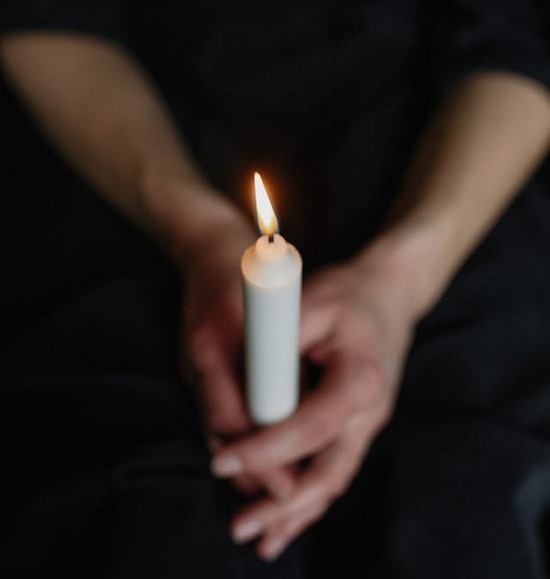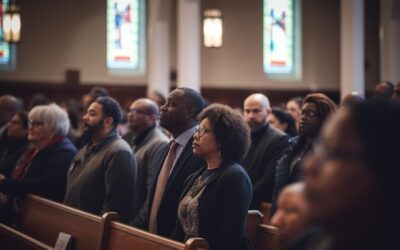Friday rolls around, and you’re spending time with your friends or relatives when they mention they’re going to vespers this evening.
They said the word so nonchalantly. Maybe that made you feel like you should know what it means. Maybe that’s what brought you here now.
Vespers comes from the Latin vesper, meaning “evening star,” and vespera, meaning “evening.” Today it refers to an evening prayer time, or “evensong” in Roman Catholic, Orthodox, Lutheran, and Anglican churches. It could take place any evening and usually happens around sundown, involving prayer, celebration, thanksgiving, or praise of God.
As we’ll see next, Adventists are more specific when they use the word.
Vespers for Adventists is a special time of worshiping God to begin or end the Sabbath. It can range from a quiet time of Bible reading to a casual home gathering, or even a formal worship service.
We’ll dive into the specifics of vespers and why it’s so important to Seventh-day Adventists. You’ll learn:
- The meaning of vespers
- Why Adventists hold vespers
- What happens during vespers
- Where to find a vespers program
Let’s start with what the word itself means.
What does “vespers” mean for Adventists?

Photo by Douglas Bagg on Unsplash
When Adventists talk about vespers, they’re referring to a time of informal worship or formal liturgy that either begins the Sabbath or ends the Sabbath—Friday night vespers (the most common) or Sabbath night vespers.
They celebrate it at sundown because the biblical Sabbath runs from sunset to sunset. In our clock-controlled world, we begin our days at midnight. But in biblical times, the new day began with the setting of the sun.
This goes back to Creation.
Each day of the Creation week concluded with the words “there was evening and there was morning, the [first, second, third, etc.] day” (Genesis 1:31 NKJV). After the evening and morning of the sixth day, God rested on the seventh day and set it apart as holy (Genesis 2:1–3). This 24-hour period is the same Sabbath that we welcome during vespers.
Why do Adventists participate in vespers?
Friday evening vespers, beginning at sunset, celebrates the start of the seventh day, the Sabbath—a day to set apart from the rush of life and focus on our relationships with God and with other people. Vespers serves as the boundary between day-to-day busyness and the Sabbath.

Photo by Tima Miroshnichenko
Here’s how.
Hurry permeates our lives. So many people have demanding jobs, or work overtime. To add to that, we often rush from there to pick the kids up from school to take them to sports practices. And don’t forget cooking meals for a hungry family and folding the laundry that’s been on the couch for days!
With all the busyness, it can be hard to slow down and transition our minds onto God.
But vespers paves the way for that transition. We praise and thank God for His guidance and help through the past week. And then, we turn our attention to God and the people around us so that we can be fully present in the blessings of the Sabbath.
At the same time, vespers connects us with like-minded people who want to draw closer to Jesus.
And as Sabbath ends on Saturday evening, we once again pause, this time to thank God for the blessings of the Sabbath and ask for His strength in the new week. We transition out of the Sabbath and back into the day-to-day, refreshed and bringing God’s presence with us.
Who can attend vespers?
Vespers is for anyone! Even if you don’t keep the Sabbath, you can enjoy the activities of a vespers service. Adventists are an inclusive bunch, so we’ll welcome you with open arms, whether you want to participate or just observe.
What happens during vespers?

Photo by Ksenia Chernaya
Vespers can involve a variety of worship-related activities. Some vespers services, particularly those on Adventist college or academy campuses, can be like miniature church services or concerts. But others take place in people’s homes with simple traditions—lighting candles, eating a special meal, singing certain songs, or sharing blessings from the past week.
And note: Vespers doesn’t have to happen with other people. Sometimes, a person may prefer to spend a quiet Friday evening reading the Bible, taking a walk while praying, or listening to music. Or a family may use Friday evening as a way to bond with one another instead of being with a large group.
Regardless of the exact circumstances, here are some possible vespers activities:
- Prayer
- Music
- Bible study
- Testimonies

Photo by cottonbro studio
Prayer
One person might pray to begin and end vespers. Or the vespers could be structured like a prayer meeting, where people share prayer requests and pray together in pairs or small groups.
Music
Many Adventists sing hymns or praise songs to welcome the Sabbath. Some may pull out their instruments, too.
Two common vespers songs from the Seventh-day Adventist Hymnal are “Day Is Dying in the West” and “Abide with Me.” The hymnal also has a section of songs about the Sabbath with “Don’t Forget the Sabbath” and “Safely Through Another Week” being the most popular.
Bible study
In a family or home setting, this could be as simple as reading a Bible passage, devotional, or story and discussing it. Some may host a small group Bible study for vespers, too.
In a more formal program, an individual might share a short message or sermon.
Testimonies
Sometimes, a vespers program can be a testimony service, where people have the opportunity to share how God is working in their lives. Or even what they’re thankful for or lessons they’ve learned.
Where to find a vespers program

Photo by Sofia Shultz
Vespers programs are held in numerous places: churches, Adventist college and high school campuses, people’s homes, or out in nature. They can even happen over ZOOM and livestream. To find a vespers program near you, contact your local Seventh-day Adventist Church. Their websites’ calendars and Facebook pages can help you, too.
Experience the joy of the Sabbath through vespers
Vespers is a special part of Adventist Sabbath-keeping. Throughout the week, we look forward to this time, and when Sabbath ends, we ride on its strength into the new week.
But it’s more than just a tradition.
It boils down to relationships—vespers allows us to connect with Jesus on a deeper level and foster a sense of community.
So, why not attend a vespers program yourself? It could be just the experience you’ve been looking for.
Related Articles
More Answers
What Is ASI (Adventist-Laymen’s Services and Industries)?
ASI, which stands for Adventist-laymen’s Services and Industries, is a membership-based organization that provides support for Seventh-day Adventist laypeople (Adventist professionals who aren’t pastors).
Sola Scriptura—What Does It Mean, and Why Is It So Important?
Sola scriptura is a term that originated during the Protestant Reformation. It represents the way many Christians view the Bible and its authority.
What is the Concept of “Present Truth” and Why is it Important?
Present truth is the principle that certain biblical truths are relevant to God’s people at specific times in history. God sends the Holy Spirit to reveal truths that help us better understand how to interpret and apply His Word in a present moment.
What Does the Bible Say About Modesty
The Bible teaches that modesty, a form of humility and respect, is a valuable quality in everyone—men, women and children. It has to do with how we present ourselves, which should exemplify our inner relationship with God.
13th Sabbath Offering: What It Is and Why It Matters
On the last Sabbath of every quarter, Adventist churches participate in the 13th Sabbath offering—a special offering that goes to mission fields around the world.
Adventist Movies: Where Faith and Film Meet
The Seventh-day Adventist Church’s mission from the beginning has been to share God’s truth in the Bible. And as times have changed, we’ve explored new ways of doing this—one of those being movies.
Everything You Need to Know About an Adventist Church Potluck
Every so often, usually on a schedule ranging from once a week to once a month to once a quarter, an Adventist church will have “fellowship dinners,” often casually referred to as potlucks.
How to Join the Seventh-day Adventist Church
Whether you heard about the Seventh-day Adventist Church through a traveling evangelist, during your online searches, or through a loved one or relative, you might be considering joining yourself.
How Do Adventists Make Movie and Music Choices?
We have entertainment at our fingertips. With just a tap on our smartphones, we can access all the latest movies, music, YouTube videos, and more.
Do Adventists Celebrate Birthdays?
Yes, most Seventh-day Adventists do celebrate birthdays because we see them as excellent reminders of the life God has blessed us with. And we celebrate them the same way everyone else does—with friends, family, presents, and a special meal.
Are Seventh-day Adventists Christians?
Yes, the Seventh-day Adventist Church is a Protestant Christian denomination formed in 1863. Just like other Christians, we believe that Jesus Christ is our Savior and seek to follow the principles of the Word of God.
Do Seventh-day Adventists Believe in the Secret Rapture
The secret rapture belief asserts that the followers of Jesus will be suddenly and stealthily “raptured” from earth and taken to heaven. Then, any people left on earth will face a period of great difficulty—before Christ’s second coming actually happens.
The Seventh-day Adventist Hymnal
The Seventh-day Adventist Hymnal is a songbook used worldwide by many Adventist congregations during their worship services. Since its publication in 1985, it has helped foster praise to God while reminding church members of our mission and drawing them closer to Jesus.
Do Adventists Have Their Own Bible?
Adventists have some unique beliefs—you might be able to name some of them right now. The seventh-day Sabbath. Death as a sleep. Hell as nonexistence.
Do Adventists Celebrate Communion and Foot Washing?
Like many Christian denominations, Adventists regularly participate in communion, also referred to as the “Lord’s Supper” or the “Last Supper.” They also practice foot washing (John 13:1-20), or the “ordinance of humility,” during the service—which isn’t as common.
How do Adventists choose what to eat?
Every day, parents go through the ritual of getting their kids to eat what is healthy and good while trying to steer them away from what can hinder the growth of their developing bodies. Nutritionists work with their clients to make better food choices.
What Are Seventh-Day Adventist Sermons Like?
In nearly every Seventh-day Adventist Church, the sermon is the focal point of the main service—similar to many Protestant Christian denominations. It is a time of biblical instruction by the pastor, who shares what they’ve been studying in the Bible and preparing over the previous week.
Didn’t find your answer? Ask us!
We understand your concern of having questions but not knowing who to ask—we’ve felt it ourselves. When you’re ready to learn more about Adventists, send us a question! We know a thing or two about Adventists.



















